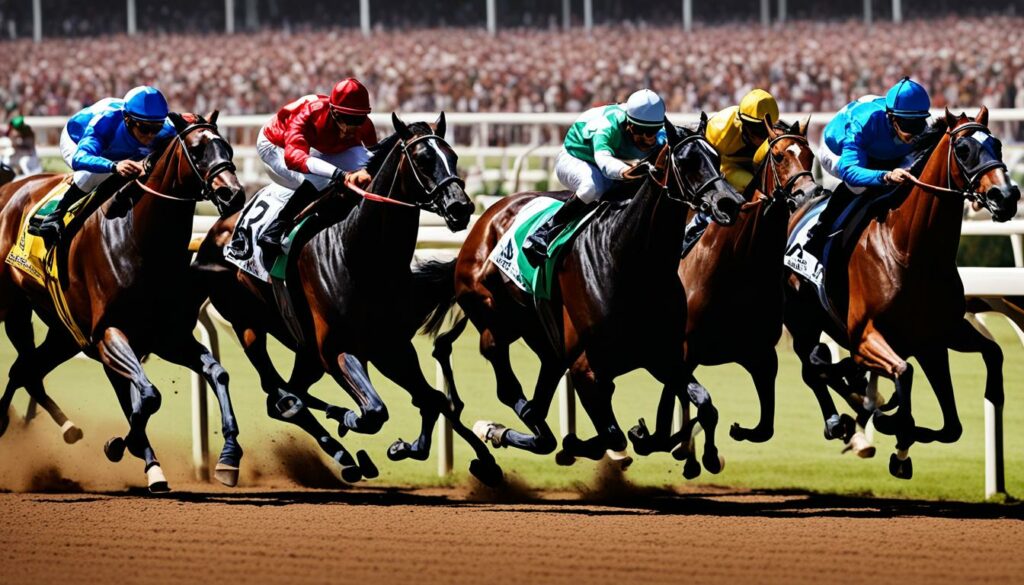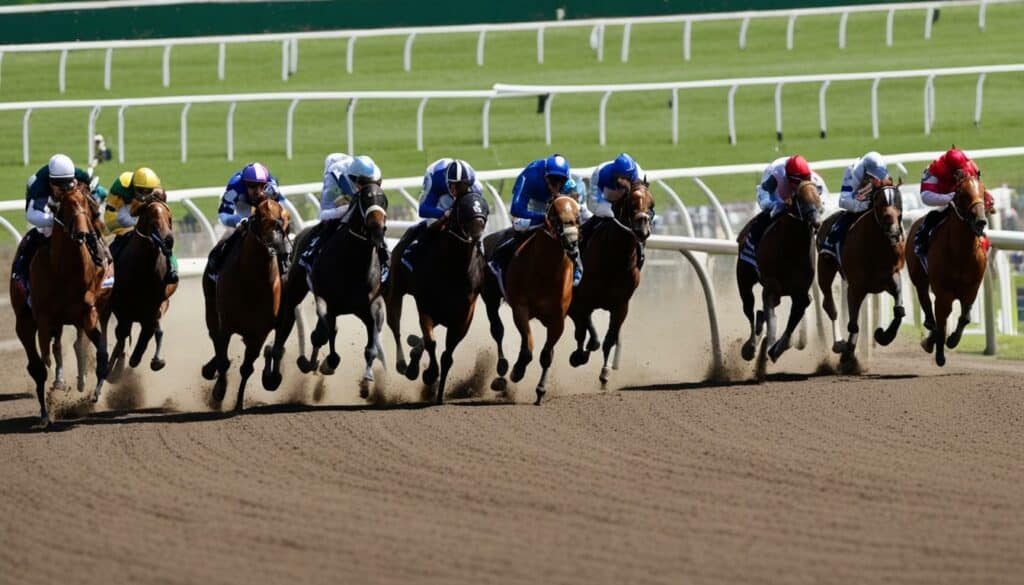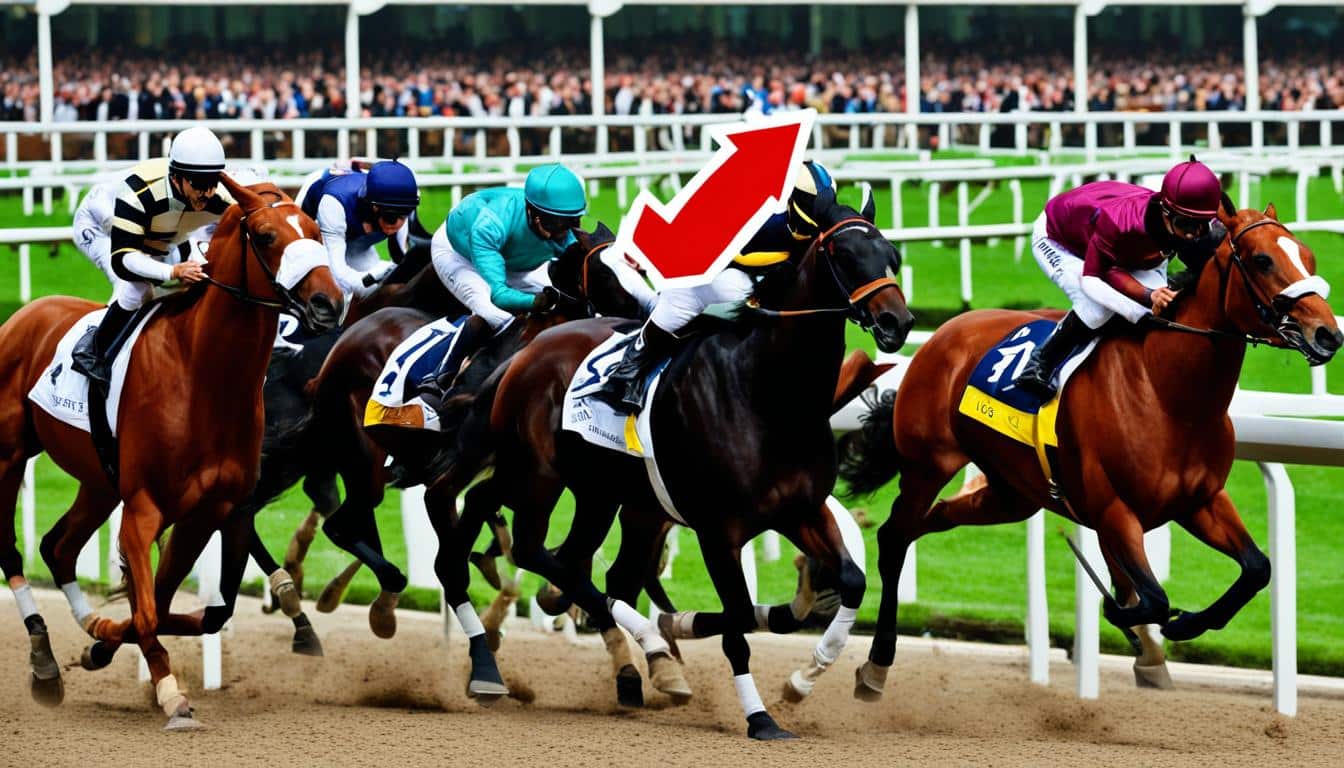Have you ever found yourself wondering how many horses you should bet on in a single race? With so many options and variables to consider, it can be tough to know what the best strategy is. But fear not – in this article, we will explore some horse racing tips and strategies to help guide your decision-making process.
Whether you’re a seasoned horse racing enthusiast or a newcomer to the sport, there are a few key things to keep in mind when deciding how many horses to bet on. By understanding the different factors at play and considering your own personal risk tolerance, you can make more informed decisions that increase your chances of success.
Understanding horse racing odds
Before you place a bet on a horse race, it’s essential to understand how the odds work. The odds are the chances of a horse winning a race, and they influence the payouts of your bets. There are different types of horse racing bets, and each has specific odds assigned to it.
The most common type of bet is the win bet, where you bet on a horse to win the race. The odds for a win bet are presented in a fraction format, such as 2/1 or 5/1. The first number is the amount you can win if you bet the second number. For example, if the odds are 2/1, and you bet $100, you could win $200 (plus your original bet).
Other common types of horse racing bets include place bets, where you bet on a horse to finish first or second, and show bets, where you bet on a horse to finish in the top three. The odds for these bets are typically lower than win bets, but the payouts are still significant if your horse performs well.
In addition to these straightforward bets, there are also more complex horse racing bets, such as exacta bets and trifecta bets, where you must correctly predict the first two or three horses and their finishing order. The odds for these bets can be much higher, but they are also more challenging to win.
To calculate horse racing odds, many factors come into play, including a horse’s past performance, track conditions, and jockey and trainer records. Understanding these factors can help you make informed decisions and improve your chances of placing a winning bet.
Factors to Consider When Selecting Horses to Bet On
When it comes to betting on horses, placing a bet without considering certain factors can decrease your chances of winning. To increase your odds of success, you need to evaluate various elements before making your selection.
Past Performance
One of the primary factors you should consider when selecting horses to bet on is their past performance. Analyzing their past races can give you insight into their running style, consistency, preferred distance, and more. Look for horses that have consistently placed in recent races and have performed well on the specific track conditions.
Jockey and Trainer Records
Another aspect you should consider is the jockey and trainer records. Look for jockeys and trainers that have a history of success in horse racing and have a high win rate. It’s also worth looking into their past performance on the particular horse you’re considering.
Track Conditions
The conditions of the track can also significantly impact the performance of the horses. Some horses perform better on specific track conditions, such as firm or soft ground. It’s crucial to evaluate the track conditions before making your selection and look for horses that have a history of performing well under similar conditions.
Other Factors
Other factors worth considering include the horse’s age, weight, breeding, and recent workouts. All these elements can influence the horse’s performance and impact your betting strategy.
By taking the time to evaluate these factors, you can make more informed decisions when selecting horses to bet on. Remember that horse racing is a game of luck and skill, and proper analysis can increase your odds of winning.
The benefits of betting on multiple horses
If you’re looking to boost your chances of winning at horse racing, placing bets on multiple horses could be a sound betting strategy. By backing two or more horses, you increase your chances of a payout as one of those horses is more likely to win. Of course, there are also risks involved, as your total stake will be higher.
One potential drawback of betting on multiple horses is that it may decrease your potential profit. If you spread your wager too thin, it could dilute the profits from a winning bet. Additionally, if you bet too heavily on one horse, it could erase any gains from the other bets. That’s why it’s essential to consider your horse racing strategy carefully when placing multiple bets.
If you decide to bet on multiple horses, consider using different types of bets. For example, you could place an each-way bet on one horse and a straight win bet on another. This will increase your chances of a payout while still keeping your stake at a reasonable level.
Ultimately, whether you choose to bet on multiple horses or not will depend on your own betting strategy and risk tolerance. Just remember to consider all the factors and position yourself for success!

The impact of odds on your betting strategy
Understanding how odds work is an essential part of developing a successful horse racing betting strategy that maximizes your chances of winning. It’s crucial to analyze the odds assigned to each horse, as they can impact your betting decisions significantly.
To make more accurate horse racing predictions and devise smarter bets, take the time to study the odds and evaluate their significance within the race.
One strategy is to compare the odds of different horses and assess their likelihood of winning. For example, if two horses have similar odds, it may be more beneficial to bet on the one with a better jockey or past performance record.
Tip: Don’t let the odds completely dictate your betting decisions. Opt for horses with strong performances and records, even if they have lower odds, as there’s always a chance for an upset in horse racing.
Additionally, keep in mind that the odds can fluctuate leading up to the race. Consider monitoring the odds and making last-minute decisions accordingly, such as pivoting your bets to horses with more favorable odds.
| Odds | Probability | Payout |
|---|---|---|
| 1/1 | 50% | $2 for every $1 bet |
| 2/1 | 33.33% | $3 for every $1 bet |
| 5/1 | 16.67% | $6 for every $1 bet |
Table: Horse Racing Odds Cheat Sheet for reference
By analyzing the odds and staying up to date on the latest developments in the horse racing industry, you can refine your betting strategy and increase your chances of winning big.

Conclusion
When it comes to horse race betting, having a solid strategy is key to success. Understanding odds, considering various factors, and analyzing past performance are all important elements to consider when selecting horses to bet on.
As for the optimal number of horses to bet on in a single race, there is no one right answer. It depends on your own personal strategy and risk tolerance. Betting on multiple horses can increase your chances of winning, but it also comes with potential drawbacks.
Ultimately, the best way to approach horse race betting is to stay informed, stay analytical, and stay true to your own strategy. Whether you’re a seasoned betting pro or just starting out, keeping these principles in mind can help you make smart, successful bets and enjoy the thrill of the race. Good luck!
FAQ
How many horses should I bet on in one race?
The number of horses to bet on in a single race depends on your betting strategy and risk tolerance. Some experienced bettors prefer to focus on one or two horses with higher winning probabilities, while others spread their bets across multiple horses to increase their chances of winning. Ultimately, it’s important to do thorough research and consider factors such as past performance, jockey and trainer records, and track conditions before making your decision.
How do horse racing odds work?
Horse racing odds represent the probability of a horse winning a race. They are calculated based on various factors such as the horse’s past performance, track conditions, jockey and trainer records, and market demand. The odds are displayed in different formats, including fractional, decimal, and moneyline, depending on the region. Higher odds indicate lower chances of winning but offer higher potential payouts. Understanding odds is vital for developing a successful betting strategy.
What factors should I consider when selecting horses to bet on?
When selecting horses to bet on, you should consider factors such as past performance, including recent races and performance on the specific track and distance. Additionally, analyzing jockey and trainer records can provide insights into their capabilities and success rates. Other factors to consider include track conditions, horse age and health, and any relevant news or information that may impact the race. By considering these factors, you can make more informed decisions when choosing which horses to bet on.
What are the benefits of betting on multiple horses?
Betting on multiple horses in a race can increase your chances of winning. By spreading your bets across several horses, you hedge your risk and have the potential to win if any of your chosen horses perform well. However, it’s essential to note that betting on multiple horses also increases your overall cost, as you are placing multiple bets. Additionally, you need to carefully consider the odds and potential payouts to ensure you still achieve a profitable outcome.
How do odds impact my betting strategy?
Odds play a significant role in developing an effective betting strategy. Lower odds indicate that a horse is more likely to win but may result in smaller payouts. Higher odds suggest that a horse has a lower chance of winning but offer the potential for larger payouts. Analyzing the odds can help you identify value bets, where the odds assigned to a horse are higher than its actual chances of winning. By understanding the odds and making calculated decisions, you can enhance your betting strategy and increase your chances of success.
What should I consider when developing my horse racing betting strategy?
When developing your horse racing betting strategy, consider factors such as your risk tolerance, budget for betting, and your overall goals. It’s essential to research the horses, analyze their past performances, track conditions, jockey and trainer records, and factor in the odds to make informed decisions. Experiment with different strategies, such as focusing on a single horse or spreading your bets, to see what works best for you. Remember, there is no guaranteed strategy for winning, so it’s important to enjoy the process and manage your bankroll responsibly.












